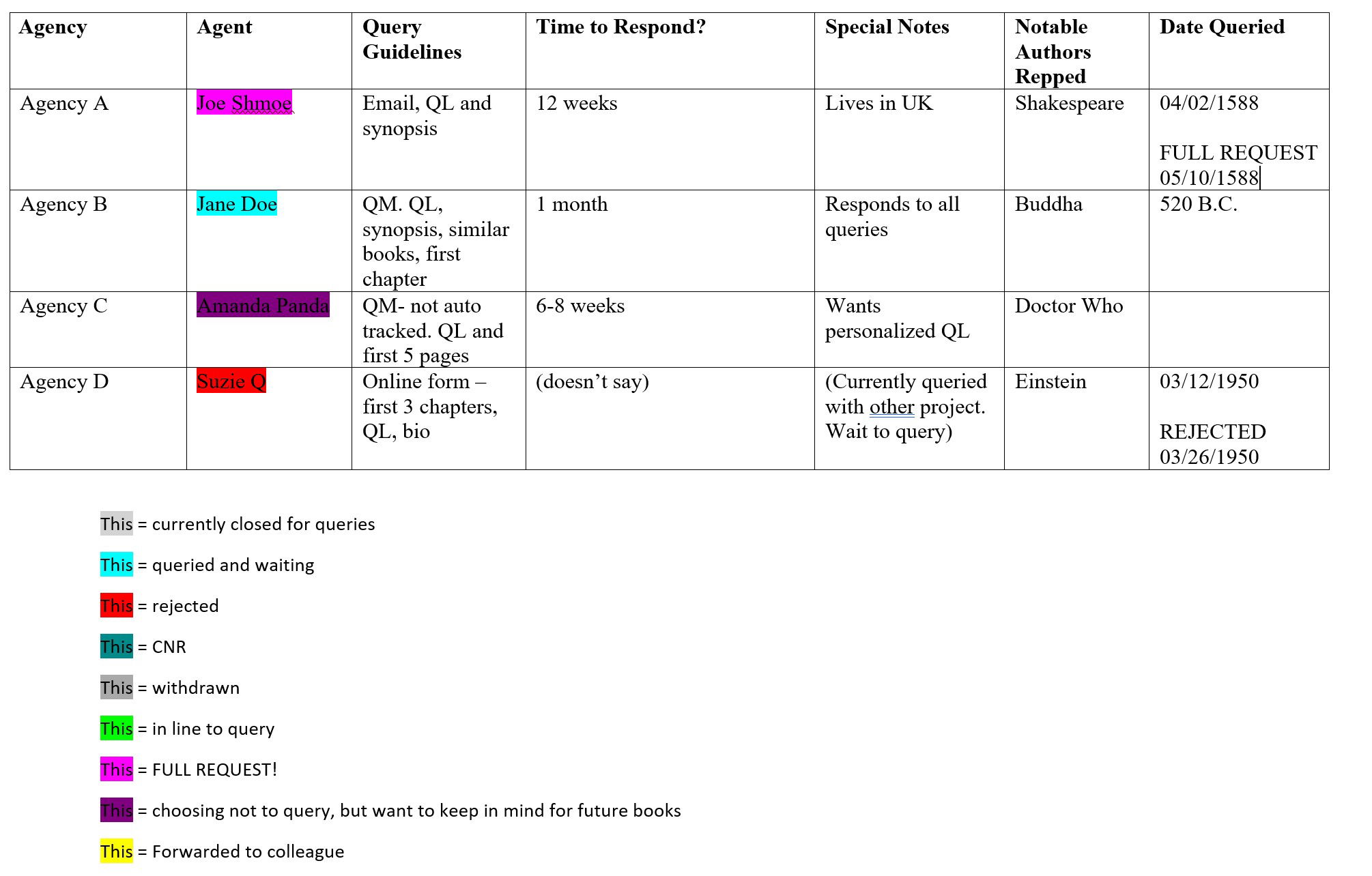Querying Made Easy
Chances are that if you're just starting out, you have no idea what you're doing. And if you're like I was, you'll have no idea that you have no idea what you're doing. For me it was a painstaking process of trial and error compounded by getting a quality critique partner and simply getting better at writing.
This post won't be about all the nitty gritty about making a quality critique package so much as some tips and tricks that make querying easier. So, without any further ado, here's a few tips I've picked up a long the way (in no particular order):
1. Some agents ask for some extremely specific things, but most ask some of the same questions. One thing that will make your life TREMENDOUSLY easier while querying is to make word documents with answers to all the commonly asked questions so you can copy and paste (then personalize as necessary). For me that includes the answers to the following.
-Similar books
-Intended audience (for your novel)
-Author bio
-One sentence pitch
-One paragraph pitch (less common than one sentence, but I have seen this)
-Your Querytracker login info (which I highly recommend using, even if it's just the free version)
-Your query letter (QL) and synopsis
2. Almost everyone asks for pages, usually somewhere between 5 and 20 (though I've also seen 30 and 50 pages as well). If they ask for it as an attachment it's easy enough to create a new document copy and pasted from your full manuscript (remember to add page numbers!), but if you have to copy and paste (specifically into Query Manager), there's a few things that can make the process easier.
-Have a separate copy of your manuscript that's formatted differently so you have extra space between paragraphs and none of the paragraphs are indented. This will help SO MUCH for copying and pasting into QM without having to spend an eternity reformatting your pages.
-Use the shift key when highlighting the desired portion of your manuscript rather than clicking and scrolling to copy it. It's usually much faster
3. Pretend to submit your first few pages several times before actually submitting it. Like, format it all, delete it or close the browser, then do it again. EVERY SINGLE TIME I've queried I've found small things I want to change after copying and pasting or reformatting my first few pages. Doing practice ones saves you from submitting queries that aren't actually your best work. I only do this before my first query, not every time, so it's a little time consuming, but not too bad. This is something I've found works for me, but may not work for everyone, but feel free to try it out!
4. In addition to using QM, I HIGHLY suggest using a google doc to keep track of your queries. Why? Well, not every agent has a QM page (and some that do don't get auto-tracked). You're not supposed to query two agents from the same agency the vast majority of the time, and this has helped me keep track of everyone so I don't accidentally break that rule or query the same person twice (with the same manuscript or different ones).
-Here's an example of a spreadsheet like what I use and how I color code it to keep track of everything. I'm a very organized person by necessity, and this is what works best for me :)

Querying is complicated, and these are only a few things that can help simplify the process. Remember to be patient with yourself and with agents, and always remember to work smarter and save yourself time to work on your craft and not just your query :)